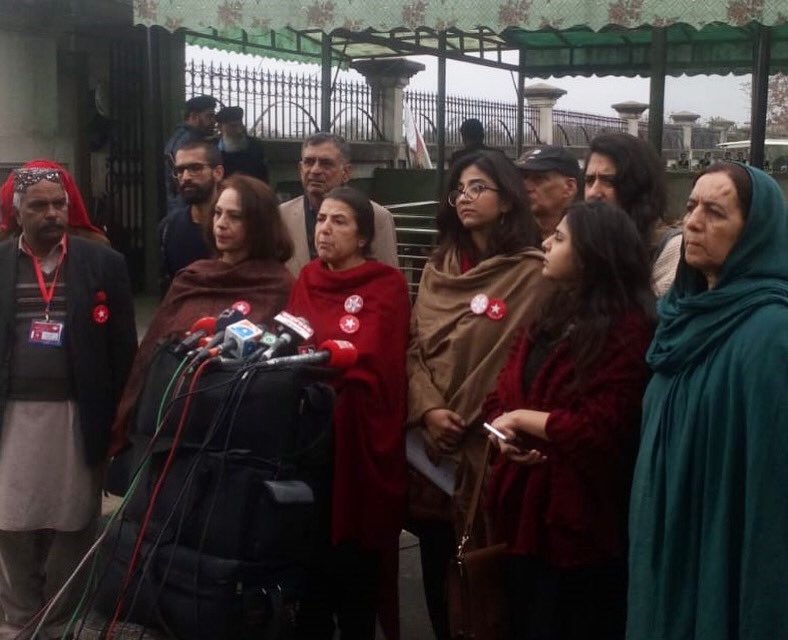
Our posters for this year commemorate the connected struggles for women’s emancipation across Pakistan, as women fight for safety, well-being, recognition and equality across geographies, cultures and faiths.
#AuratAzadiMarch2021
#AuratAzadSamajAzad
#AuratAzadiMarch2021
#AuratAzadSamajAzad

This poster honours in particular the women of Balochistan leading the non-violent movement against enforced disappearances and injustices in Balochistan.
It remind us of the staggering diversity of women’ s concerns, which go far beyond the domestic sphere and are determined by political and socio-economic structures and inequalities that we often unquestioningly accept and take for granted.
It reminds us of the need for our feminism to attend to all contexts beyond our immediate comfort zones. And for the need for genuine solidarity that can create the basis for healing and a universal sisterhood.
Join us this 8th of March, 2021 in defending women's right to live a life free from violence and socioeconomic inequality and oppression.
Artist: Isma Gul Hasan
#AuratAzadiMarch2021
#AuratAzadSamajAzad
Artist: Isma Gul Hasan
#AuratAzadiMarch2021
#AuratAzadSamajAzad
The variations and others colors of @AuratAzadiMarch posters can be downloaded for free and printed in HQ at linktr.ee/IsmaGul
• • •
Missing some Tweet in this thread? You can try to
force a refresh





